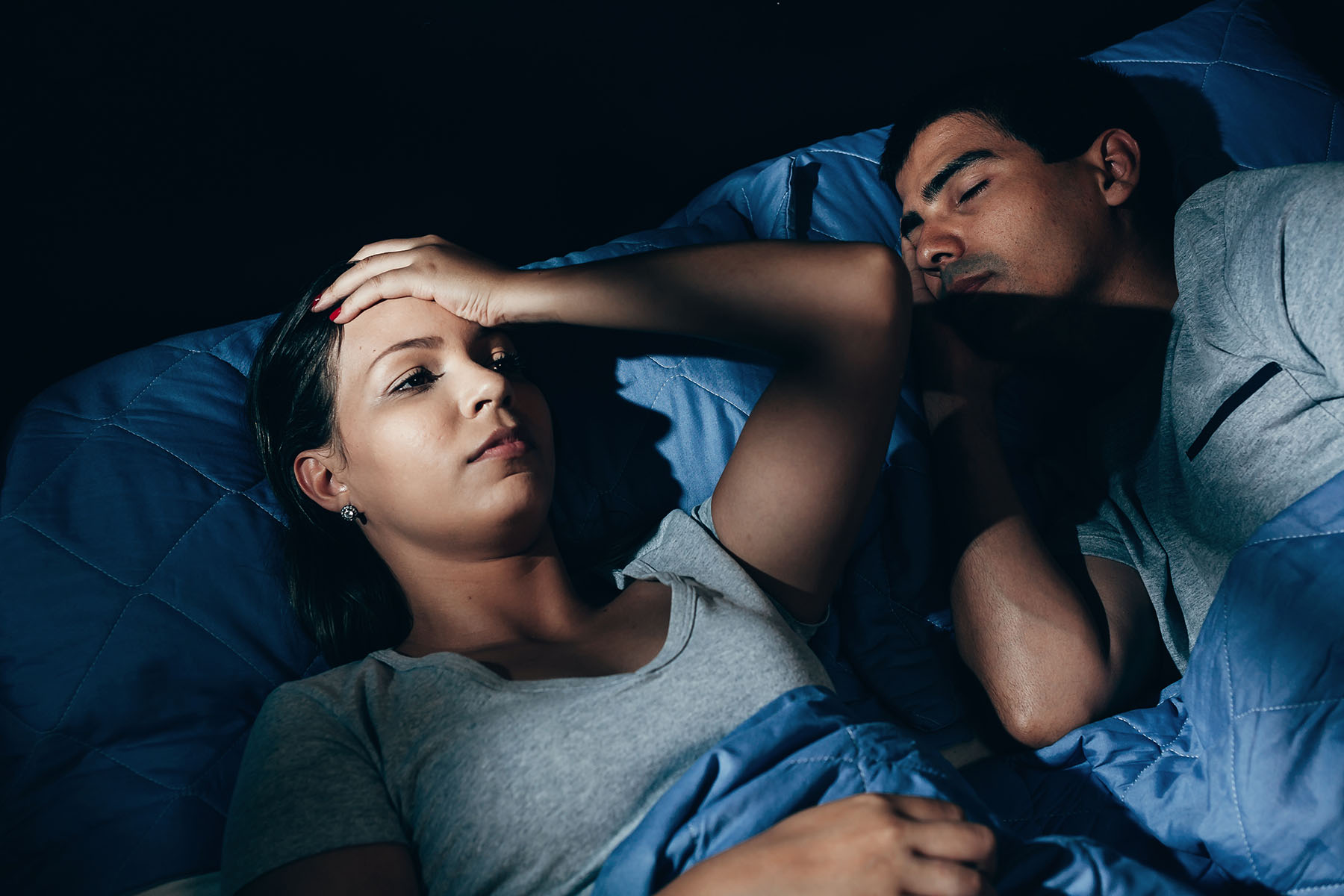Expert: How Does Stress Affect Sleep?

Felicia Gould, Ph.D., a clinical neuropsychologist with UHealth, discusses how stress affects our ability to get a good night’s sleep.
How can we tell if stress is impacting our mental health?
Dr. Gould: Sleep is one of the first things we see break down. I often say that most of my patients who are diagnosed with a mental health condition either sleep too much or not enough, with more of my patients typically not getting enough sleep.
If stress is a factor, you will see a change in your sleep patterns and energy levels coinciding with stressors or stressful life events. Over time, stress and sleep-related changes may also impact your mood and result in increased irritability or decreased enjoyment of things you previously enjoyed. That’s when we start getting concerned and consider that the mind may be succumbing to the negative impact of “bad stress.”
There is also a “chicken or egg” phenomenon – poor sleep can cause stress, and stress can cause poor sleep.
How do we know if poor sleep is due to stress?
We have to look at factors such as what kind of chronic stressors are happening in your life. What are you worried about? If you had a particularly tough day at work, and you’ve had a lot of chronic work stress, do you see worse problems sleeping that night but find it easier to sleep when you are off from work or away from chronic stressors? You might find a connection there.
It’s wise to consider all the factors that are going on in your life. Make sure you’re practicing good sleep hygiene and doing all the things you’re supposed to do to facilitate a good night’s sleep.
Of course, there are age-related sleep difficulties, and women often report that perimenopause and menopause impact their sleep. However, I don’t believe that everyone, as they age, inevitably has sleep difficulties. There are plenty of people who are able to get a good night’s sleep as they age.
What can we do to improve the quality of our sleep, even during stressful periods?
Dr. Gould: It’s really important to practice good sleep hygiene. For instance, I’ve had patients say, ‘I’m sleeping terribly,” and I find out they’re drinking a pot of coffee at 4 o’clock. So, limiting caffeine and not eating (especially caffeinated high-sugar desserts) before bed helps. We know that physical exercise helps, and there is increasing evidence that spending time outdoors is helpful for alleviating the stress that can disrupt sleep. Following regular sleep and wake time also helps.
All of these things can help, but inevitably, we are all going to experience stress in life that we can’t control.
We can make sure we’re doing our best to cope with it by getting support.
If you are chronically worried and just can’t seem to let it go, get social support – talk it over with a friend or supportive family member. If you’re really struggling, I encourage you to seek professional help. Just because everyone experiences stress is not a reason not to seek help when you feel overwhelmed, and sometimes, good sleep hygiene is simply not enough. There’s a whole team of mental health counselors and social workers trained to address some sleep-related issues and the effects of chronic stress.
This is an excerpt from a recent University of Miami Health System “In the Know” town hall discussion on stress and the impact good and bad stress have on mental health.
Q&A compiled by Nancy Moreland, a contributing writer for UMiami Health News. She has written for several major health care systems and the Centers for Disease Control and Prevention. You can also find her writings in the Chicago Tribune and U.S. News & World Report.
Tags: chronic stress, daily routine, importance of sleep, neuropsychology, sleep stress, stress management
